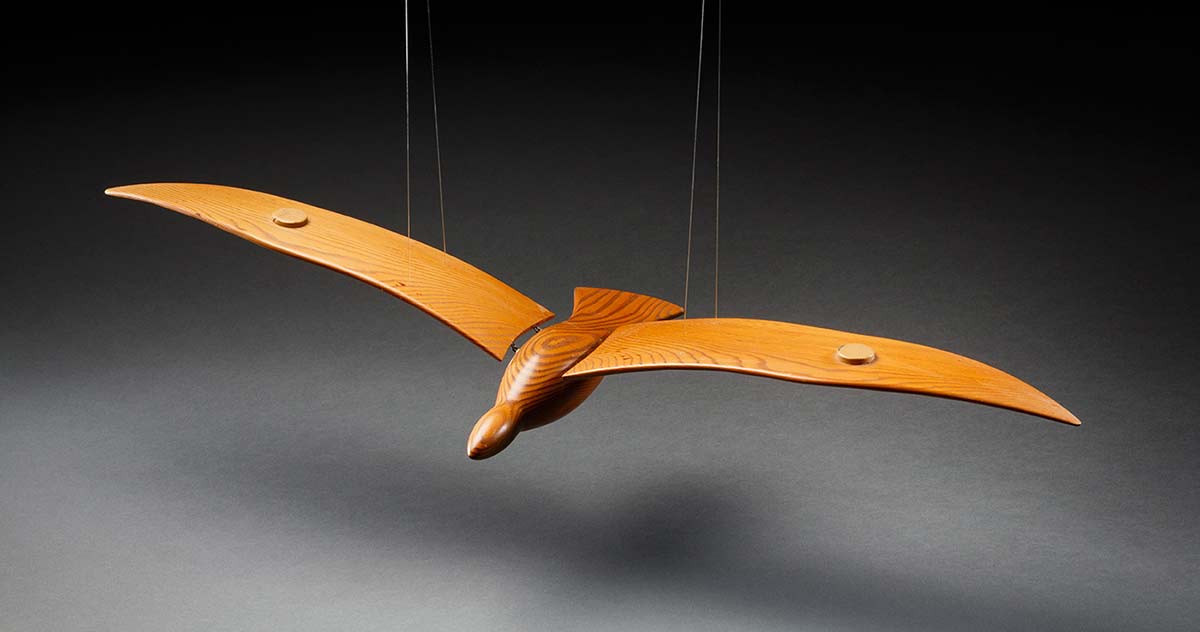Dementia advocate
2017 Australian of the Year | South Australia
Humanitarian, advocate and activist for people with dementia, Kate Swaffer was diagnosed with the disease just before her 50th birthday. Refusing to be defeated by the diagnosis, Kate has transformed tragedy into triumph, and become a voice for the 47.5 million people worldwide living with dementia.
Kate's wooden seagull mobile
The short story ‘Jonathan Livingston Seagull’, first published in 1970, resonates strongly with Kate Swaffer. It is about following your own path and seeking to attain your full potential.
This wooden seagull, bought over 30 years ago, usually hangs in Kate’s office. It represents truth and freedom, and reminds Kate to keep going when others might stop, or to start, even if she is the only one; to fly in her own direction.
Inner drive
Each of us must find our own way, but then, I believe, we each have a responsibility to use our given talents to serve others. We may have the freedom to love, to choose, and to live every day as we wish but, without real purpose and meaning, there seems little point unless we do something positive with our lives.
Overcoming
Losing someone I loved to suicide 31 years ago more than took my breath away. It changed my life irrevocably, but eventually for the better. Having dementia has ultimately had the same effect. Dementia has given me clarity about life, a purpose that I had never felt so intensely before, and a passion to change the world for all people with dementia.
Be the change
As Margaret Mead once said, ‘Never doubt that a small group of thoughtful, committed citizens can change the world; indeed, it’s the only thing that ever has’. This seagull, along with my husband Peter Watt and sons Matthew and Charles, is the wind beneath my wings.
You may also like

